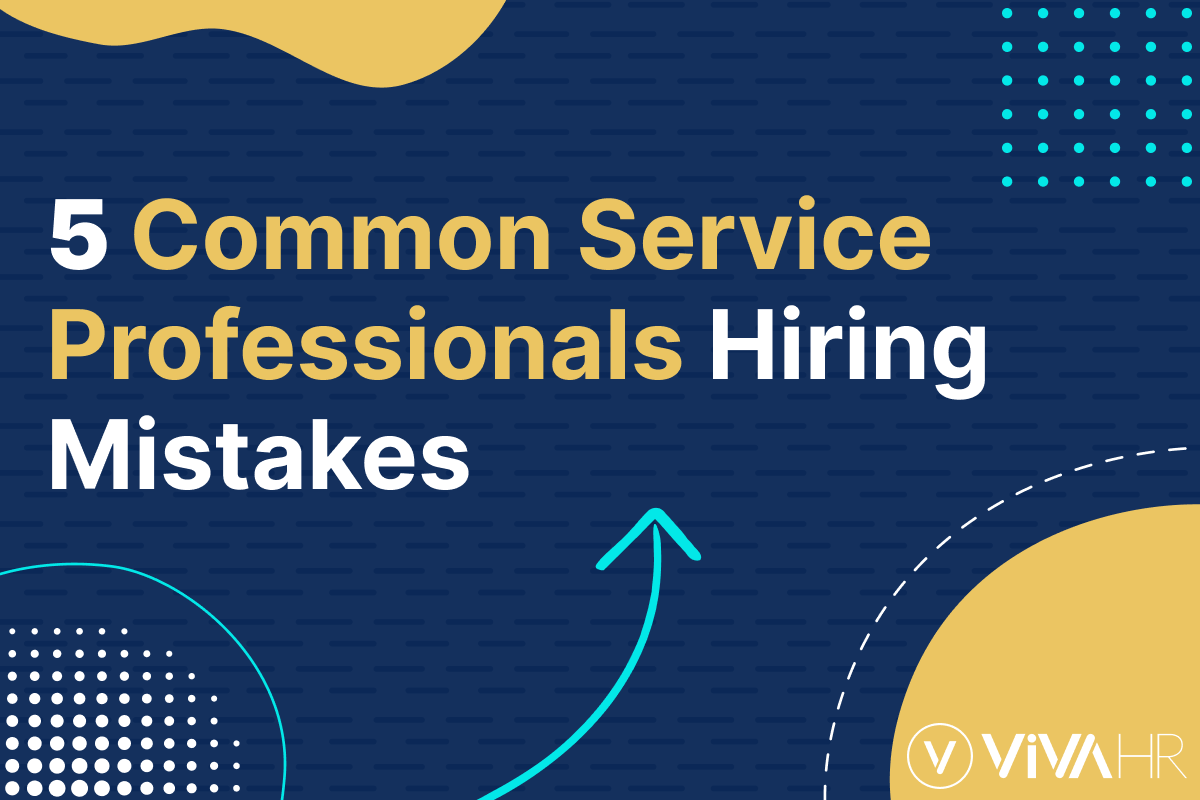When business is booming, the bottlenecks are growing. Hiring quickly can make or break your service business, but hiring the wrong person can do much more harm than adding value.
Hiring for service industries is at an all-time difficult level, and if you’re reading this, you know you’re not alone.
A survey by Aberdeen found that only 59% of service businesses were meeting their employee turnover goals. That means the other 41% are struggling to hang onto their field service technicians.
If you want to hire talented employees who will stick around and perform up to your standard, avoid the common hiring mistakes discussed below.
5 Mistakes that Ruin Your Chances of Hiring Great Employees
1. Poor Job Description
Your job description is one of the most important documents you can use for performance reviews and keep as a regular document to leverage performance expectations.
Not explaining those work requirements clearly right out the gate, can come back to hurt your organization.
Unfortunately, it’s far too common to see service contractor businesses using vague and general template job descriptions.
A-Players love structure.
They want to see how to achieve success.
C-Players love vague and hitting “just good enough” requirements. Keep the standard high with clear roles and expectations to perform in each job position.
In your job description, use the opening paragraph to sell your business.
Give the candidate something to be excited about.
Purpose-based hiring has seen a major uptick in the conversion rates of candidates.
Tell that company story and clearly share your business “why” and you’ll quickly find candidates sharing the same passion.
2. Underestimating the Value of Culture Fit
Culture fit is one of the most important indicators employees identify when leaving their current employer.
Recruiting in a tight labor market can be quite time-consuming, the longer a new hire stays with your business, the better your return on investment.
Each new hire needs to be viewed on their approach to their job, work ethic, and how their professionalism will align with your expectations.
Someone who respects their coworkers is more likely to stick around for the long haul, even if your business is going through a rough patch or dealing with an unexpected rush.
Hiring someone to join your small business who has a terrible culture fit, can have a long-term damaging effect.
3. Overlooking the Hard Skills Necessary
Just because a job candidate looks great on paper, doesn’t necessarily mean they know what they’re talking about.
Most of us have been there. We have hired someone who said they could perform a function only to find out they were not entirely truthful.
Avoid these troubling discoveries with hard skill testing.
If you’re hiring an HVAC technician who claims to have field experience, you need to get them in front of common problems they’ll be seeing and test their true industry knowledge.
The good news is that a simple written or on-site skills test can give you a clear picture of someone’s actual skill set and abilities.
A technical test can also help you narrow down the pool of applicants in two ways: only those who are serious about working for you will bother to take the test and the results will allow you to identify the most qualified applicant.
This is a crucial part of the hiring process for field technicians, especially if you don’t have the time or resources to provide on-the-job training before sending a new technician out on their first job.
4. Forgetting the Power of Soft Skills
Technical know-how and experience are likely at the top of your wish list for new hires.
However, if your new candidate has a hard time taking instruction, communicating with peers, or arriving on time to employment functions, those technical know-hows don’t have much value.
So, if you have the time to train and mentor a novice technician, you should weigh their hard skills (like industry knowledge and specific technical abilities) against their soft skills.
Identify the need-to-have soft skills vs the nice-to-have to get a clear picture of what your ideal hire will process.
Never ignore those red flags because you’re desperate and in love with a candidate’s hard skills.
5. Hiring Family Over Qualified
Leveraging your network to find quality referral hires is a great idea.
Looking to your family to fill gaps because it’s convenient, is a challenge we see time and time again.
It’s one thing to hire your family member if they’re a talented professional in your field.
It’s something else entirely to hire a relative solely because they’re related to you.
No matter the relationship connection, second cousin, sibling, or in-law, hiring family members can complicate company culture and strain your relationship in ways you might not expect.
Avoiding the drama of bringing in a family member to work in your organization is highly recommended.
Firing or reprimanding them can lead to a ton of avoidable drama.
As a general rule, you should only hire people who you would be willing to fire if necessary.
If you do decide to hire a relative despite these risks, set clear expectations from day one.
Communicate that their job security is dependent entirely on their performance and has nothing to do with their blood relation to you.






